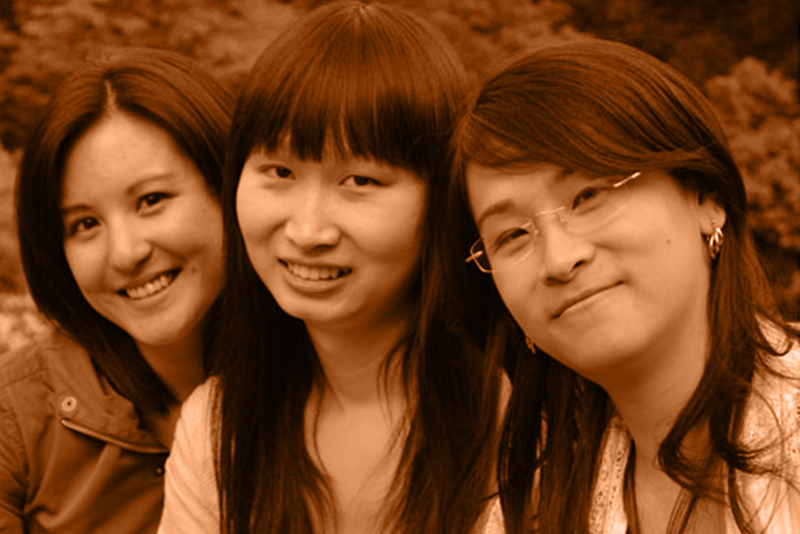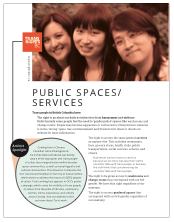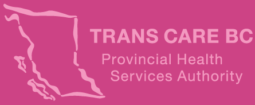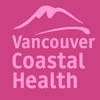Update: For information regarding the addition of Gender Identity and Expression to the 2016 BC Human Rights Code, and to the 2017 Canadian Human Rights Act, please visit the Explicit Protection page.

Trans people in British Columbia have:
- The right to go about our daily activities free from harassment and violence. Unfortunately some people feel the need to ‘gender police’ spaces like washrooms and change rooms. People may become aggressive or call security if they believe someone is in the ‘wrong’ space. See the Harassment and Violence section of this website for more information.
- The right to access the same general services as anyone else. This includes restaurants, bars, grocery stores, health clubs, public transportation, social services, schools, and clinics.
- Businesses cannot refuse to serve us because we are trans, because their staff is uncomfortable with trans people, or because the staff thinks that customers may be uncomfortable with trans people.
- The right to be given access to washrooms and change rooms that correspond to our felt gender identity. We have this right regardless of our anatomy.
- The right to access gendered spaces that correspond to our felt gender identity, regardless of our anatomy.
- Unfortunately, the right to receive gendered services and participate in gender-based activities has one exception. A transphobic court case decided that if the organization offering the service is a non-profit organization whose primary purpose is to serve women, it is allowed to discriminate against trans women. That said, many women’s organizations welcome and include trans women.
How can you stand up for your rights?
- Advocate for signage that indicates that a gendered space welcomes trans people.
- Advocate for more gender-neutral spaces, including universal, accessible, single-user washrooms and change rooms.
- It can be helpful to carry ID that matches your gender identity. With a form completed by your doctor or psychologist, you can get a BC Services Card or BC Driver’s License that reflects your gender identity. A BC Services Card that does not include a driver’s license is free.
- Advocate for training for service providers about how to be respectful of trans people.
- If you are denied access to a gendered space (including a washroom or change room) that corresponds with your felt gender identity, you can file a human rights complaint under the BC Human Rights Code. See Human Rights Complaints for more information. In cases where you are being discriminated against by an organization that claims it is covered by the one exception in the BC Human Rights Code, contact a lawyer.
- If there are no gender-neutral washrooms and you identify as non-binary, you can file a human rights complaint under the BC Human Rights Code. See Human Rights Complaints for more information.
- If you are denied any other services on the basis that you are trans, you can file a human rights complaint under the BC Human Rights Code. See Human Rights Complaints for more information.
- If you experience harassment or violence, you can report the crime to the police. See the Harassment and Violence section of this website for more information.
- Write down everything that happened to you when you experience discrimination, harassment, or assault. Note all meetings you had, requests you made, and what happened. It is very hard to remember things accurately unless you do this.
Who can you go to for help?
- For a free legal assessment of your situation, contact the Catherine White Holman Wellness Centre . Email lawyer@cwhwc.com to book an appointment.
- CWHWC has a legal clinic for trans and gender diverse people twice a month. There is a waitlist. Clinic lawyers are not able to represent you, but they can give you a list of lawyers who specialize in human rights complaints. If you cannot travel to the Catherine White Holman Wellness Centre, you may be able to set up an appointment by Skype.
- Another organization called Access Pro Bono has over 75 legal advice clinics throughout the province. Not all Access Pro Bono lawyers will be familiar with trans legal issues. For more information about Access Pro Bono and the programs it offers, or to find a legal advice clinic in your area, go to: accessprobono.ca or call: 1-877-762-6664.
- To find a lawyer familiar with human rights issues, call the BC Branch of the Canadian Bar Association at 604-687-3221 or 1-800-663-1919 (Monday to Friday, 8:30am to 4:30pm). They can give you the name of a lawyer who does Human Rights Complaints and Charter cases, and who will have a consultation with you for up to 30 minutes for a fee of $25 plus tax.
- To find the contact information for a lawyer whose name you already know, you can use the Lawyer Lookup tool.
- To find victim support services near you, visit the Ending Violence Association of BC.
- For help filing a human rights complaint, contact the BC Human Rights Tribunal. They may also be able to represent you. However, there are rules what cases the Tribunal takes on. Contact them at 604-775-2000 in the Lower Mainland or 1-888-440-8844 in the rest of BC.
Resources:
- Peeing in Peace: A detailed guide by the Transgender Law Center about handling harassment and advocating for change.
- Toilet Training: A film made in 2013 by Tara Meteik and the Sylvia Rivera Project. You can watch clips for free. There is also a great activist and educator guide.
- Building a Path to Parks and Recreation for All: Reducing Barriers for Trans* & Gender Variant Community Members. By the Vancouver Park Board Trans* And Gender Variant Working Group. This document published in 2014 provides detailed recommendations for promoting equal access to parks and recreation services.
- The Human Rights Complaint Process for Transgender People in BC by barbara findlay, QC. Free download available.




